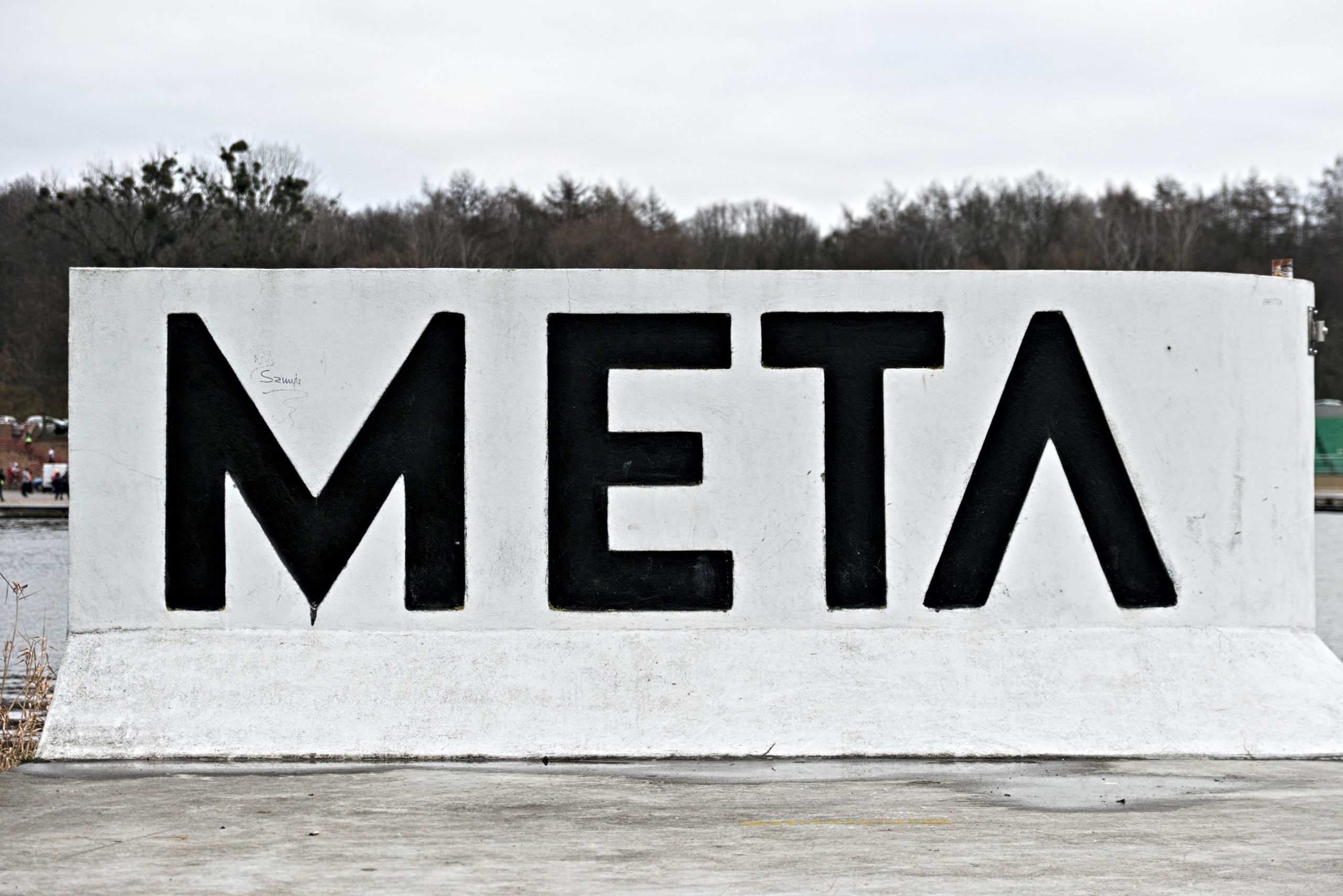
After much speculation, Facebook finally took the easy way out by changing its name.
There are two apparent reasons for the move. The first is that we’ll stop talking about Facebook’s evil algorithm, and focus instead on the new name and what it means. The other thought is that renaming the entire company with a fresh coat of brand paint gives Mark Zuckerberg an exit strategy.
Along with Elon Musk, Jeff Bezos, and Steve Jobs, it’s difficult to think of another CEO so closely associated with a company. While this worked for Zuckerberg in the early years when Facebook’s mission was “to give people the power to build community and bring the world closer together.”
Well, that hasn’t worked. And now facing whistleblowers, angry staffers, and legislators who seem to be finally figuring out the impact of social media on every level of society, Zuck finds himself increasingly under scrutiny.
By creating a global brand for all of the company’s assets – including Instagram, WhatsApp, OculusVR, and Facebook, of course – Mark will end up at Meta while some other executive will take the reins of the social media platform that has eaten the world. But now, it is threatening to devour its creator.
What exactly does “meta” mean?
It actually has many meanings in different languages, but as Bloomberg News explains, it means “a virtual-reality platform in which people congregate and communicate in digital environments” to Mark Zuckerberg.
Apparently, there’s a bit of an obsession with the “metaverse” concept. And the company’s stock symbol will not be META (it turns out it’s taken), but will be MVRS. You have to wonder how much confusion that will cause all those day traders.
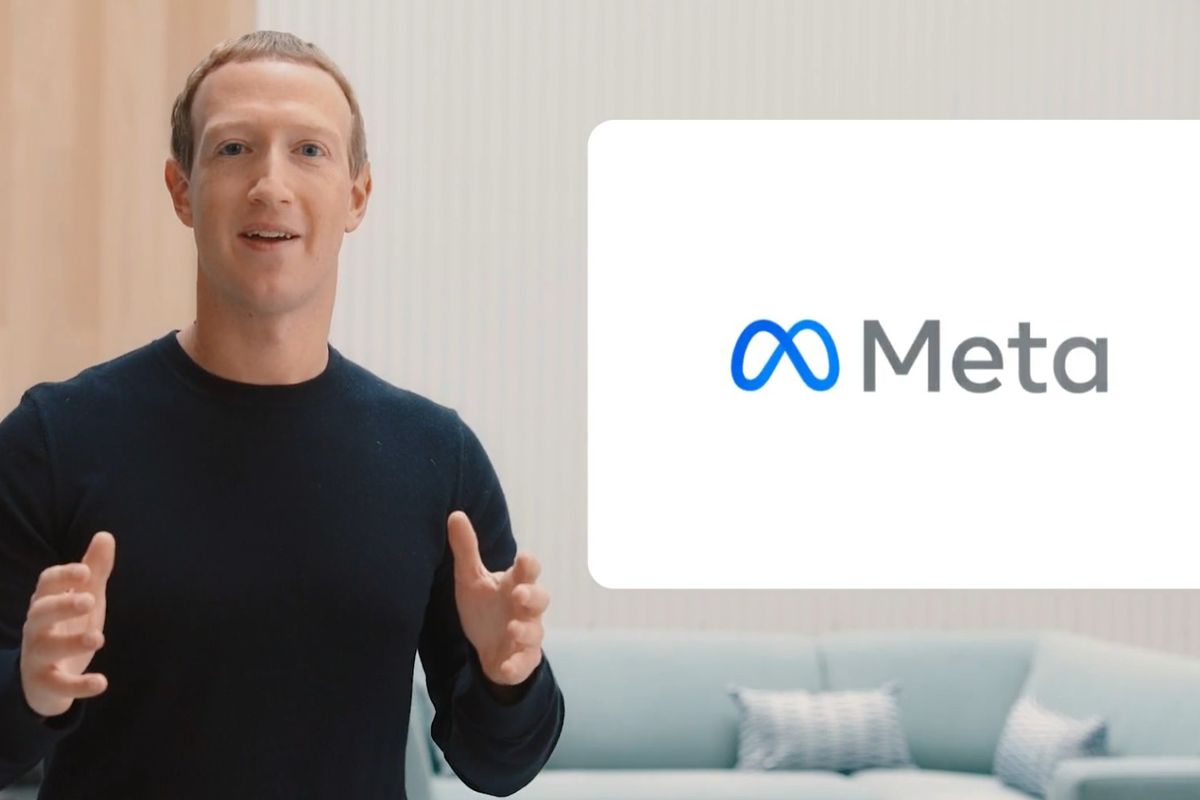
Do these name changes work for companies trying to re-brand, modernize, or in Zuckerberg’s case, hope it distracts us?
If we learned anything from Google essentially making the same move when they came up with an equally weird name in 2017 – Alphabet – most of us simply end up defaulting to the original name. “Google” already was a verb, and we continue to “Google things” with regularity.
We shouldn’t expect brands to all of a sudden ask us to “like us on Meta.” Facebook will remain the indelible brand that even Mark Zuckerberg can’t sidestep.
It didn’t take long for the memes and social media jokes to begin – just minutes after the jubilant Zuckerberg delivered the news:
— Pete Curley (@petecurley) October 28, 2021
If you’re wondering what on earth they’ll parody on Saturday Night Live this weekend, wonder no more. Who knows? Maybe Jesse Eisenberg – who played Mark Zuckerberg in The Social Network – will return to SNL to reprise his role.
In the world of business, these name changers usually aren’t game-changers. More often they’re a way of buying a fresh new start – or escaping from imminent danger and legal trouble.
After that awful plane crash in the Everglades in ’96, ValuJet took on the name AirTran, a company it had merged with. And just recently, Johnson & Johnson ran into a heap of trouble with the safety of its baby powder, formed a new subsidiary, LTL Management, that will deal with football fields of litigation under this new banner. Meanwhile, J&J will continue to make its products, from vaccines to band-aids to sunscreen.
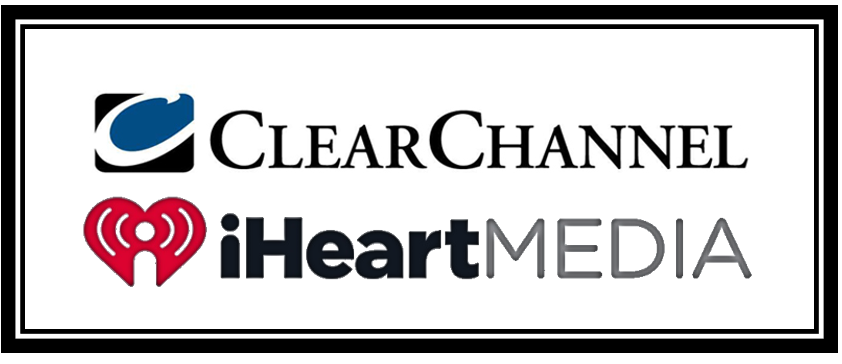 In radio, we’re not strangers to strategic name changes because the two biggest companies have done just that in recent years. First, there was Clear Channel’s transition to iHeartMedia (a play off of their iHeartRadio platform) back in 2014. That move effectively allowed the company to leave behind its Mays family roots to forge ahead into the multimedia space.
In radio, we’re not strangers to strategic name changes because the two biggest companies have done just that in recent years. First, there was Clear Channel’s transition to iHeartMedia (a play off of their iHeartRadio platform) back in 2014. That move effectively allowed the company to leave behind its Mays family roots to forge ahead into the multimedia space.
And earlier this year, it was Entercom ditching its traditional radio brand for one that suggests the broader audio landscape – Audacy. As CEO David Field explained, “We have transformed into a fundamentally different and dramatically enhanced organization and so it is time to embrace a new name and brand identity which better reflects who we have become and our vision for the future.”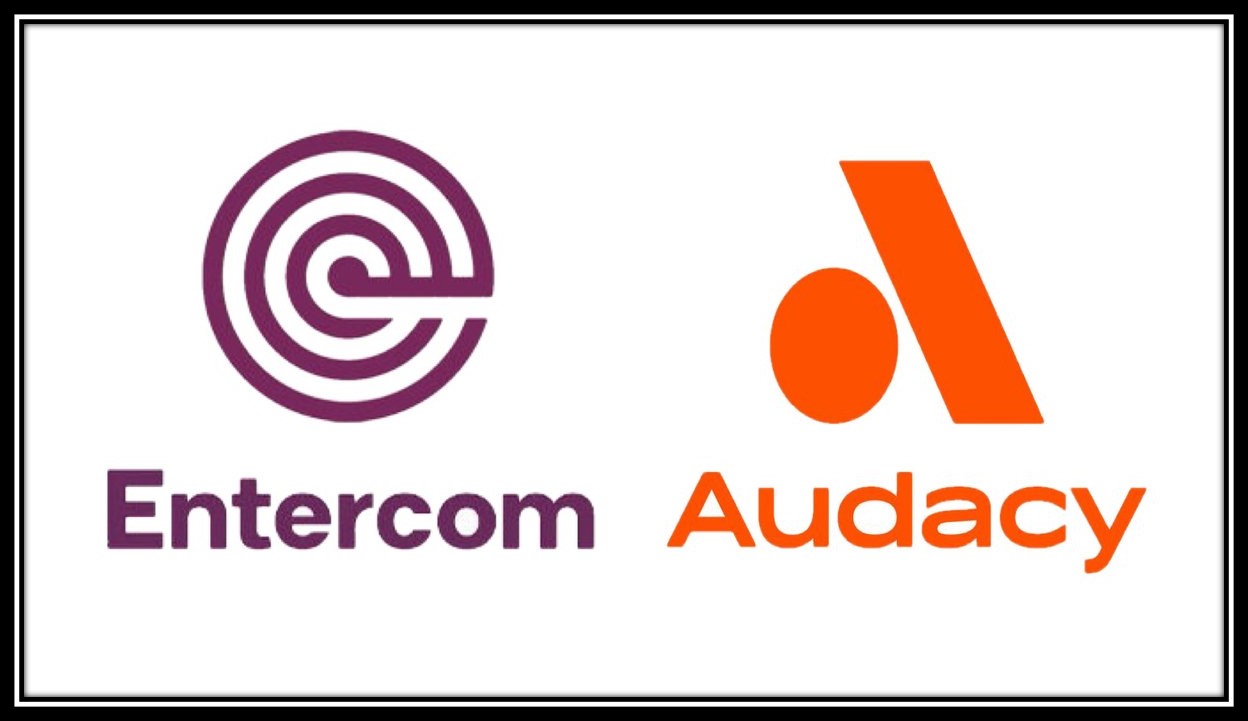
Like the iHeart brand shift, these moves are designed to communicate, “We’re not just a radio company anymore.”
Whether either rebranding was successful and had the desired effect is in the eye of the beholder – or the stockholders. Or perhaps the people who make business cards, wrap station vans, and the VO talent who cut the new legal IDs.
In the end, time and perspective are the variables that will lead us to concluding whether these changes helped their companies change minds and hearts.
In Zuckerberg’s case the Meta move is a calculated risk that like Facebook itself, will be under all sorts of scrutiny – by legislators and by the public-in the coming months and years.
So, do these brand changes end up having the effect of giving a company a fresh coat of paint – another chance to define itself? Or are they more like tactics that cover up for obvious problems that are hopelessly baked in a brand?
In the case of Zuckerberg’s leap into the metaverse (or is it metasphere?), it turns out this play has been run before – actually on the basketball court.
This tweet by writer Sam Koppelman, who had this one sussed out pretty quickly:
What if I told you…
The year is 2004.
Ron Artest is suspended after the Malice in the Palace.
Mark Zuckerberg is building an app to rate girls in his dorm.
One of these men will become Meta World Peace.
The other? Meta World Destruction.
A 30-for-30, dir. by Sam Koppelman.
— Sam Koppelman (@SammyKoppelman) October 28, 2021
Ron Artest was a gifted NBA star who had a tendency to find himself in hot water, culminating with that “Malice at the Palace” incident in a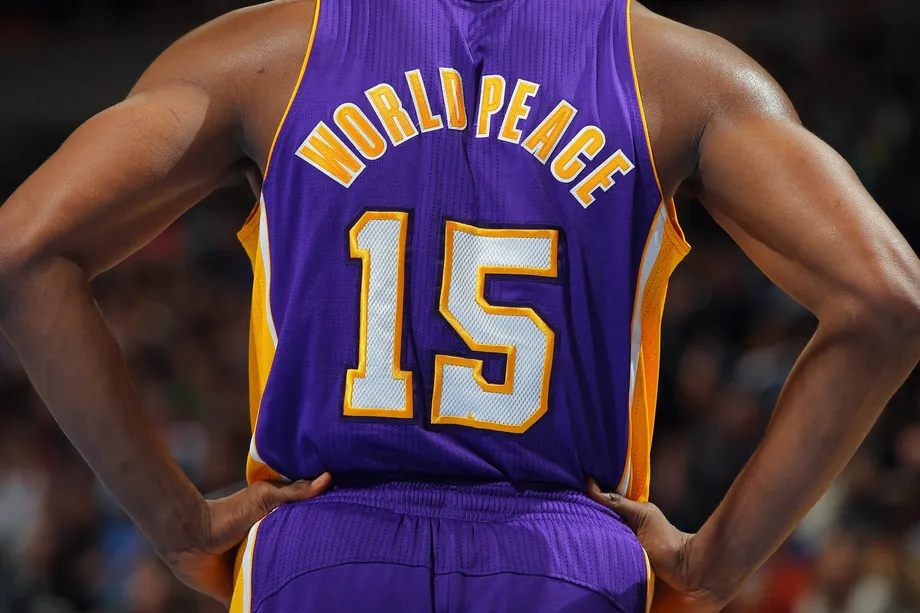 game between the Pacers and Pistons back in 2004.
game between the Pacers and Pistons back in 2004.
In an effort to rebrand himself, Artest legally changed his name, not unheard of in pro sports.
But his choice? Metta World Peace, a new name he proudly sported on the back of his uniform as he moved from the Lakers to the Knicks and then retirement. Equipment managers shortened the uniform name to “World Peace,” dropping the Metta.
Maybe Zuck should have gone with something more aspirational like Artest’s switcheroo. Rename the company “world peace.”
Or “end poverty.”
We’ll see if Meta becomes a new way brands describe themselves.
Especially the first new radio station sign-on called Meta.
“Meta Radio” or “Meta 107” has a nice ring to it.
Knowing Facebook, it will not be a high bar to reach.
- Media And Technology In 2025: Believe It Or Not! - April 18, 2025
- In Radio, You Just Never Know - April 17, 2025
- The Secret To Making A Great Podcast (And Great Radio) - April 16, 2025




The “new Coke”?
I guess we’ll find out…
And the beat goes on.
Yeah, bad slogan & an even worse decision. Thanks, JC.
Rant warning!
A rose by any other name…
In case no one else wants to say it, I hope that whatever goals supported the name change, it all fails miserably. In the continuum of self made billionaire greed, Jeff Bezos seems like a Care Bear for disallowing bathroom breaks compared with knowingly transforming this country into two factions of primal haters and playing a major part in making teenage girls feel suicidal – we all know that some actually went through with it. There was a point when all of this was reversible and he knew it – its way too late now and he knows that too.
Next to Covid, nothing in my lifetime has caused as much harm as the company now knows as Meta has – and it certainly made the impact of Covid worse. When the history books are written, Meta may end up worse than Covid, because at some point it will be under control and Zuckerberg’s (should be spelled with an F) social media empire never will.
There was no doubt, a lot of money spent on research supporting this name change that would have been better spent figuring out how to keep the platforms viable without causing irrevocable worldwide harm – and if that had been done when it could have mattered, they wouldn’t need to paint lipstick on this one of the biggest in human history pig.
IMO, it won’t work and I really hope I’m right.
I hope you’re right. It couldn’t happen to a better guy. As rants go, this is one of your best.
Fred and Bob, did you happen to see this frightening headline from the Babylon Bee when Facebook was down for the day recently? Sends shivers to think of what these hacker terrorists are capable of…
https://babylonbee.com/news/hackers-warn-that-if-demands-arent-met-they-will-reactivate-facebook
Ha ha. Very Onion-esque.
Count me among those who believe the corporate name change isn’t going to deflect scrutiny from Zuckerberg’s little empire. His problem is that Facebook has been so much in the news lately that literally EVERYONE who thinks he should be at least regulated and at worst broken up is going to know Meta is the new name. (To channel Dan Rather: “If it looks like Facebook and behaves like Facebook, it’s still Facebook.”)
I am thrilled that he was thwarted in getting the stock ticker symbol. Perhaps he better start getting used to disappointments.
No one is a big fan of Zuck’s, KM. And for good reasons. Facebook got too big for him (or anyone to corral), but he surely knew its effects on polarizing American politics.
TikTok is killing FB and FB is an aging platform. Your Tech Survey shows that. FB is terminal, no name change can stop their slide.
And our survey barely includes teens (not big radio listeners either), a boost for Facebook, and a no help for TikTok. Facebook is too big to be “over,” but they have major issues. Thanks for the comment.